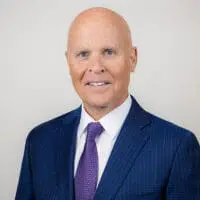Environmental & Natural Resources Law
Environmental Enforcement Under Trump – Be Careful What You Wish For
Regardless of whether you are a Trump supporter or Trump hater, and there certainly seems to be very few people who are indifferent to the guy, trying to prognosticate what he will do is very difficult. He is a political outsider with no record of governance. We don’t know how much of what he says he will do, he actually will try and do. But assuming he does seek to implement significant change at the EPA, how much impact will the Trump administration have on a massive and entrenched enforcement bureaucracy? And what will the result be to the regulated community?
Before we examine the various potential scenarios of what he might do at the Federal level, and how those actions will in turn potentially cause changes at the state and local level, let’s discuss the limits of what he can do, even if he wants to make drastic and wholesale changes.
The executive branch can only do so much. He cannot change law, only congress can. He can reverse past executive orders, and issue new ones. He can put in new agency heads with new priorities. He can direct the EPA to revoke, amend or enact new rules. He can act as a lightning rod to actually push for legislative changes, perhaps drastic ones. But he cannot act contrary to the law or refuse accept court decisions without creating a constitutional crisis, and he cannot tell States what priorities to take or what goals to seek. Indeed, his choice to lead the EPA is a huge advocate for States being able to set their own policies and goals.
Even if the legislative branch completely buys in to Trump’s desires, the judicial branch is where things (as usual) will wind up. Whatever Trump does, whatever the Congress does, it will be challenged in court. And those vehemently opposed to the environmental regulatory changes that have been floated to date, are well funded and know their way to the court house.
So, whatever changes are in store, in terms of both legislation and agency interpretation, will be fought over for years to come.
What kind of changes are we likely to see in environmental enforcement, and what will the ramifications of those changes be?
Let us assume that the new administration will direct the EPA to be less aggressive in pursuing enforcement. What does that mean?
For criminal cases, I would speculate that it will mean very little. I would find it unlikely that Trump will take any action toward changing EPA policy on what should be pursued as a criminal case. Even environmental conservatives will not want to be painted as soft on crime, and that seems at odds with the professed goal of draining the swamp. Bad people doing bad things will still be punished.
In theory, there could even be more of this, as Trump is a populist, and his railing against lobbyists and big business has obviously struck a chord with the American people. So he may actually pursue more cases against big companies.
For civil cases, things get a lot more complicated.
The EPA does several things regarding civil enforcement. First, it pursues cases itself. Second, it provides resources to States for their pursuit of cases. Third, it provides “oversight” to States, basically threatening them with sanctions if they are not aggressive enough.
The new administration could easily set new standards and new priorities as to which cases it wants to pursue, how hard it will pursue them, and that types of penalties or actions it seeks. There are 10 different regions with historically significant autonomy. Regions have typically set their own priorities and set their own standards for penalties. That could change too.
The easiest change would be that EPA gets it budget slashed, and it stops doing as many inspections, stops investigating and pursuing as many cases, and stops giving money to States for the States to do the enforcement. What will be the result?
First, aggressive States may choose to pick up the slack. They will bolster their agencies and do more enforcement themselves. This is true for individual facility cases, as well as larger broader industry cases. For example, if the EPA stops pursing upwind States on air cases, the downwind States will likely do it themselves
Second, the EPA will get sued by environmental NGOs (and possibly States and tribes) for not following the law and doing its job. Those suits will be very difficult to win, as the government has great latitude in exercising discretion on enforcement decisions. But that doesn’t mean they won’t have to defend them. NGOs have no problem pursuing cases they know they won’t win, they do it for publicity and to exert political pressure.
Third, and the most likely scenario by far, is that the NGOs will be the ones to pick up the slack. Environmental NGOs have lots of money and have used Trump’s election as a rallying cry for fundraising. And they have been very successful. They have lots of good lawyers, and lots of good legal tools. Unless Congress drastically changes the law, they can use citizen suits to bring enforcement cases and can always bring common law nuisance claims.
The upshot is that this may completely backfire on industry. As much as business may hate the EPA and view them as insufferable, arrogant and unreasonable, I guarantee business will be even more unhappy with the cases brought by the NGOs. The NGOs will want huge penalties, huge operational changes (or even shutting down the facility) and have little interest in settling. They typically have an environmentally extreme agenda, and no one to answer to politically. They can do whatever they want, with no filter to consider for good public policy or economic harm.
Historically, citizen suits on enforcement matters have not been that great of a concern to business. While there have been a smattering of successful cases in egregious situations, for the most part the cases get derailed by issues of standing, by the government asserting it is doing the enforcement itself, and by evidentiary problems. The data the NGOs had was sporadic and suspect, they had never actually inspected the facility, and the only successful cases were for obvious violations. That paradigm has now changed.
Modern technology has now provided NGOs with cheap, sophisticated and accurate equipment: air and water sampling, drones flying over and taking videos, heat and energy sensors, the list goes on. The bottom line is that NGOs will have much better and reliable evidence to pursue permit violations and other enforcement cases.
Of course, this is all happening regardless of whatever Trump does with the EPA, but if EPA scales back on inspections and enforcement, the NGOs have a greater justification to pursue them and it is likely that at least some Courts will bend over backwards to help them if the common perception is that the EPA has been defanged.
In terms of resources provided to the States for enforcement, this is pretty straight forward. States that have the political will to do enforcement will need to come up with the money to do it. Those that don’t, won’t.
The tricky part with this is that the EPA only provides those resources to States that have environmental regulations as strict as the federal law. This has required many States to have strict regulatory environments in order to access the EPA money. If the EPA quits giving the money, then States are much more free to loosen the regulations as they see fit. There is no funding to be lost in doing so.
This could be the biggest impact to business we see from the new administration: the tumble down effect of reducing resources to the States and in turn, many States loosening their regulatory framework.
Finally, there is the issue of EPA oversight. The EPA threatens States and essentially forces them to conduct aggressive enforcement by telling the States that if they do not, the EPA will yank their funding or will over-file and embarrass them.
If the funding goes away, and the EPA does not have the resources or political will to over-file, these are pretty hollow threats. The States should feel empowered to pursue enforcement as they see fit.
This just takes us back to what we just discussed: If the EPA stops pushing States to be aggressive, and States start becoming less aggressive, then we are going to see a huge increase in citizen suits and similar private actions.
The bottom line is that there is a very significant percentage of the American populace that is both well funded and highly motivated, and that wants to see aggressive environmental enforcement. If the new administration is perceived as backing off of that, private parties will step into the void and the likely result is that enforcement cases will be even more expensive, more problematic and more unreasonable then the cases brought by the EPA and by the States.
So my warning is this: To all of you cheering on the rhetoric of gutting the EPA and returning primacy for environmental enforcement to the States and local government, be very careful what you wish for. You might get it.

























